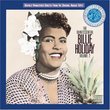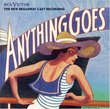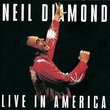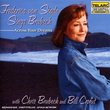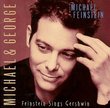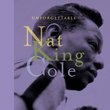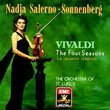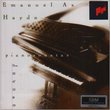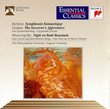| All Artists: Verdi, Callas, Di Stefano, Karajan Title: Verdi: Il Trovatore (complete opera) with Maria Callas, Giuseppe di Stefano, Herbert von Karajan, Chorus & Orchestra of La Scala, Milan Members Wishing: 0 Total Copies: 0 Label: EMI Classics Release Date: 8/19/1997 Genre: Classical Styles: Opera & Classical Vocal, Historical Periods, Modern, 20th, & 21st Century Number of Discs: 2 SwapaCD Credits: 2 UPC: 724355633323 |
Search - Verdi, Callas, Di Stefano :: Verdi: Il Trovatore (complete opera) with Maria Callas, Giuseppe di Stefano, Herbert von Karajan, Chorus & Orchestra of La Scala, Milan
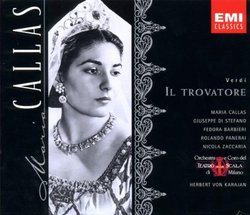 | Verdi, Callas, Di Stefano Verdi: Il Trovatore (complete opera) with Maria Callas, Giuseppe di Stefano, Herbert von Karajan, Chorus & Orchestra of La Scala, Milan Genre: Classical
Maria Callas's voice was never noted for its sheer beauty, but she was in her best form for this session and she knew exactly what to do with what she had. She might not make the distraught figure of Leonora rationally cre... more » |
Larger Image |
CD DetailsSynopsis
Amazon.com essential recording Maria Callas's voice was never noted for its sheer beauty, but she was in her best form for this session and she knew exactly what to do with what she had. She might not make the distraught figure of Leonora rationally credible, but she knows more about acting with her voice than anyone this side of Sir John Gielgud. And she puts Leonora's emotions, her vulnerability, her whole-hearted, self-sacrificial love, squarely before the listener. Herbert von Karajan's conducting brings logical coherence to a work not noted for that quality. In short, this is vintage Callas, at the top of her form in some of the greatest music and some of the most intensely emotional situations ever devised for a soprano. Von Karajan--young and not yet burdened with the mannerisms of his later years, is an ideal partner. The other singers, though dwarfed by Callas, provide substantial support. --Joe McLellan Similar CDs
Similarly Requested CDs
|
CD ReviewsA magical Trovatore Mike Leone | Houston, TX, United States | 04/18/2003 (5 out of 5 stars) "Certain recordings evoke special memories for me, and in that regard this Trovatore is near the top of the list. I still remember that Saturday afternoon 40 years ago that I wandered into the Enoch Pratt Library in downtown Baltimore, went to the music listening room and followed this recording, score in hand, from beginning to end. At the time, my only acquaintance with the opera was through the highlights LP of the early RCA Victor stereo set with Price and Tucker. As much as I had always enjoyed the RCA Victor recording, after hearing the Angel I walked out of the library that day floating on a cloud. Even now I find this recording pretty amazing.Of course, Maria Callas is probably the primary reason for owning the recording. She kept the role of Leonora in her repertoire for several years, dating back to the 1950 season in Mexico City. This recording, which was her final performance of the complete role, thus gives us her last thoughts on it. In 1956 she was still near the top of her form and is in superb voice throughout, able to manage both the coloratura and the dramatics of the part with ease. While of course it would be unthinkable nowadays for a recording to omit the Act IV cabaletta "Tu vedrai che amore in terra," it was less commonly recorded in 1956 (Tebaldi sang it in the London set issued around the same time and did not seem to be enjoying herself in the least). Callas and Karajan also work well together. Ironically when she died in 1977, Karajan was re-making the opera for EMI/Angel, with Leontyne Price recording the role for the third and final time.For me, Barbieri is close to being an ideal Azucena. She is more adept at portraying the gypsy's wildness than her tender moments, but she never sells the character short. I have a hard time choosing between her recording here and the mono RCA Victor recording, although this is certainly the version I play more often.Although I did not know it at the time I first heard this recording, Giuseppe di Stefano is a controversial piece of casting as Manrico. Not content to stick with the lyric parts that ideally suited his beautiful voice, he made constant forays into roles he might better have stayed away from, such as Canio and Manrico (he later sang Otello and even Rienzi onstage). I am able to listen to the young di Stefano without focusing on the harm he was doing to his voice by singing roles like Manrico, and so I have always gotten a lot of enjoyment out of his performance here. He sounds young and ardent, as indeed Manrico should sound, and on this recording at least he is not overpowered by the role's demands.I have always liked Rolando Panerai. There's something about the unusual timbre of his voice that I find very special, as I also do that of Ingvar Wixell, who is in my second favorite recording of the opera, the Sutherland/Horne/Pavarotti version. I don't know that I've ever heard Panerai to better effect than as the Count di Luna, possibly as Riccardo in the Puritani recording, also with Callas and di Stefano. I have always considered his "Il balen" and its cabaletta one of the highlights of this recording.Finally, Nicola Zaccaria takes the role of Fernando, which often goes for naught, and really makes something of it. His only real moment to shine is his aria in the very first scene, and he gets the opera off to a perfect start with his sinister, moody reading of the aria, abetted by Karajan's atmospheric conducting. After hearing Zaccaria's Ferrando tell the creepy story that forms the background of the opera, it's easy to believe why the soldiers are so terrified when the bell suddenly strikes.A lot of the credit for this very convincing performance of the opera rests squarely on the shoulders of conductor Herbert von Karajan. I believe every one of Karajan's tempi and nuances are ideal and really demonstrate how much a conductor can bring to an opera that is generally considered to be merely a singer's opera. Karajan certainly gives the lie to Caruso's oft-quoted statement that a good performance of Trovatore requires only the four greatest singers in the world. Certainly this would still be a recording to reckon with even without Karajan, given the strength of the singers, but whether it would be my favorite recording of the opera is a question I'm happy I will never have to answer.The CD remastering is among the best of the EMI/Callas sets that I have heard. I have this recording on LP also and the sound here is very reminiscent of the already very good sound that EMI managed to get back when the recording was first issued.My love for this recording no doubt at least partly dates back to the very special memories I have that are associated with the first time I heard it, and I don't think that is the reason it has remained my favorite for the last 40 years. I would not hesitate for a second to recommend it to anyone looking for their first, or even only, Trovatore recording." Why has no one else weighed in? Melanie | 08/27/1999 (5 out of 5 stars) "I find it hard to fathom that no one else has put forth commentary on this special set, teaming the vibrant, acute Herbert von Karajan with the equally vibrant and acute Maria Callas. Their colloboration alone should be a magnet.Yes, there are a few wayward top notes but the overall effect of Callas' Leonora is mesmerizing. This opera is SO demanding: I believe it was Caruso who said, tongue in cheek, "All it requires is the four best voices in the world." She is joined by Di Stefano, singing the demanding role of Manrico with brio and conviction. Rolando Panerai's Conte di Luna is rich, resonant and compelling. As for Fedora Barbieri as Azucena, she will put chills right down your spine: hers is a lacerating and powerful star turn. Herbert von Karajan is totally commanding. This is truly an ensemble opera, and here we have one terrific ensemble gathered by EMI." Il Trovatore - Callas reigns supreme Melanie | 03/16/2004 (5 out of 5 stars) "I was rather amused by the previous review. I know many people who heard Madame Price live (Including her signature roles such as Leonora, Tosca and her Aida) and they said that her voice was indeed lovely but not as big as Milanov's, Callas' or Stella's. It's not primarily a matter of size of course but Verdi not only demands a flawless technique but also a big voice. Price's voice was medium, and a very lovely instrument. This Trovatore was recorded around 1957, only two years after Jussi Björling called Callas' Leonora "sheer perfection". And when a Jussi Björling says this, it means something. She's in great voice, her trills are perfectly executed, no wobble whatsoever. (Esp. in D'amor sul' ali rosee) Von Karajan let her sing the cabaletta "Tu vedrai" which is sung with ardour and passion. (Milanov always skipped it) Her pianissimi in "Prima che d'altri vivere" soar to heaven and sound so lovely... The fear and agony in "Mira d'acerbe lagrime" is shattering. Now to di Stefano who sounds very good, much better than I expected. I know not how he sounded live in this role (I would imagine not too great) but here he's surprisingly solid with great phrasing and style. Barbieri still owns the role of Azucena after so many years, she is stunning. Panerei sings a GREAT di Luna even though I was hoping for Leonard Warren. All in all: A great performance, brilliantly conducted and sung. Not to be missed!"
|

 Track Listings (29) - Disc #1
Track Listings (29) - Disc #1
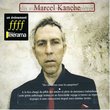
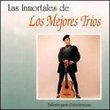
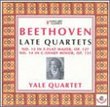
![Vivaldi's Ring of Mystery [With CD]](https://nationalbookswap.com/cd//m/30/0730/80730.jpg)
